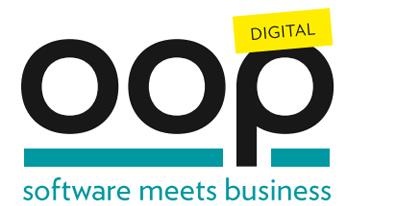- Deutsch
- Contact
- Newsletter

Conference Program
Please note:
On this site, there is only displayed the English speaking sessions of the OOP 2022 Digital. You can find all conference sessions, including the German speaking ones, here.
The times given in the conference program of OOP 2022 Digital correspond to Central European Time (CET).
By clicking on "EVENT MERKEN" within the lecture descriptions you can arrange your own schedule. You can view your schedule at any time using the icon in the upper right corner.
Agile Requirements Engineering - Best Practices
This tutorial introduces to agile requirements engineering. The half day delivers practical guidance from our projects across different industries. While being based on the IREB agile RE primer curriculum, it has more practical focus and avoids agile basics and theory. Yet, participants are eligible to IREB certification. We give practical tips for designing agile requirements processes. Attendees will learn how to combine needs of systematic requirements engineering with agile principles. Special focus is given to connect RE with agile project management and with testing. A hands-on case study shows practical usage of agile RE.
Target Audience: Project Managers, Architects, Analysts, Requirements Engineers, Product Owners, Software Engineers
Prerequisites: None
Level: Advanced
Extended Abstract
Agile projects need agile requirements engineering. Innovations in increasingly complex systems under cost pressure and in global competition demand for continuous alignment towards value and costs. The key to value delivery is requirements. They are no longer "collected" but must be developed in a targeted manner with suitable interest groups. Requirements are not frozen at an early stage but must be flexibly addressed throughout the project and product. However, agile requirements engineering is difficult to implement, especially in critical systems because of complex dependencies, growing quality requirements and diverse coordination processes.
Agile requirements engineering is not just a trivial priority setting. Leaving our some requirements when time and budget are scarce does not work in critical systems. Design thinking and team-based decision-making are nice for small applications, but hardly scale in larger industrial projects. Describing requirements vaguely and hoping that they become clear in the course of the project has already ruined many projects. Agile requirements engineering in critical and compliant context must combine the needs of classic requirements engineering with the flexibility of agile action.
This tutorial introduces to agile requirements engineering. It offers many practical examples from our industry projects when introducing agility. The training considers the IREB agile RE primer curriculum, however with more practical focus from many agile projects across industries. Participants are eligible to IREB certification. We give practical tips for designing agile requirements processes.
This begins with a value-oriented elaboration of the actual need. Then we look at techniques like Kano model, planning poker, design thinking, Kanban etc. In an industry case study, we present experiences and benefits of agile requirements engineering in a medical technology project with Siemens Healthineers. In particular, we use concrete examples and industry experience to show how agile requirements engineering is implemented in practice. This allowed us to reduce the costs for reworking by about 30%. The experience gained can be transferred to other projects and environments.
As a product manager or project manager, you will learn how to merge systematic requirements engineering with agile principles. As a successful requirements engineer or system analyst, you will learn how to use and scale agile techniques for requirements engineering.
Managing Director
Christof Ebert is managing director at Vector Consulting Services. He supports clients around the world in agile transformations. Before he had been working for ten years in global senior management positions. A trusted advisor and a member of several of industry boards, he is a professor at the University of Stuttgart and at Sorbonne in Paris. He authored several books including "Requirements Engineering" published by dPunkt and in China by Motor Press. He is serving on the editorial Boards of "IEEE Software" and "Journal of Systems and Software (JSS)".
Mehr Inhalte dieses Speakers? Schaut doch mal bei sigs.de vorbei: https://www.sigs.de/autor/christof.ebert
Vortrag Teilen

